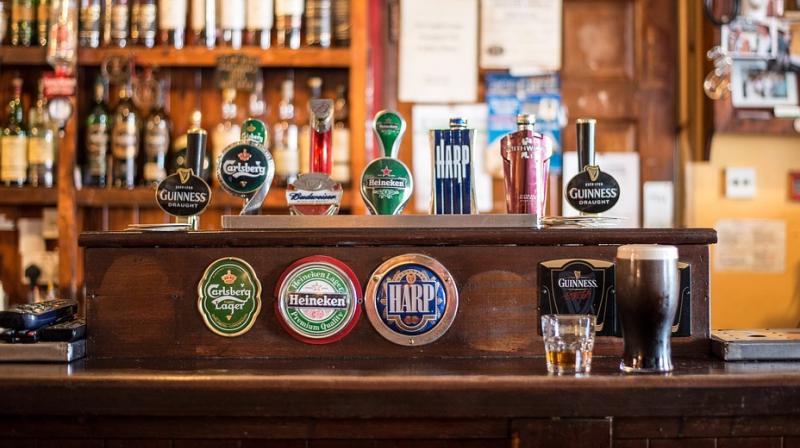Pilsner to pizzazz: Czechs’ evolving beer palette

Prague: For generations, Czechs have consumed world-beating volumes of beer in the smoky, wood-panelled rooms of their local pubs, all but indistinguishable from each other bar the brand of lager flowing from the taps.
But tastes are changing. Czechs are increasingly shunning fusty old watering holes and draft beer sales are sliding, so the world-famous brewers of pilsner are looking to inject some pizzazz into the traditional pub and attract younger patrons looking for a hip, modern feel.
“I don’t remember the last time I was in a traditional Czech pub,” said Marcel, a 35-year-old IT worker sipping a beer in Prague’s upcoming Karlin neighbourhood which is crammed with trendy bars, cafes and restaurants.
People like Marcel are the kinds of drinkers with disposable income that breweries such as Plzensky Prazdroj, the maker of Pilsner Urquell, are seeking to lure back with new concept bars designed to recharge the traditional Czech pub.
The brewery, owned by Japan’s Asahi, plans to open its first “Pilsnerka” bar catering to the hipster crowd in the capital Prague in the coming months. It also plans to launch about 20 pubs this year tied to other beers in its portfolio such as Kozel, the company said.
The designs put more emphasis on space and lighter materials to create a brighter pub atmosphere that the company hopes will appeal to the younger generation, as well as women and families.
Two-thirds of the beer drunk by Czechs is now consumed at home, a figure that has grown steadily since 2003. With margins on supermarket sales far lower than for draft beer, getting people back into pubs is seen as key for the breweries.
“Consumers are changing so this is a big opportunity to bring something new to the market,” said Tomas Mraz, sales director at Plzensky Prazdroj. “When you go to a standard pub you might get an old guy serving you beer. With the new concept you are more likely to get somebody young with tattoos serving the beer,” he said.
Demanding more
Since 2009, Czechs have consumed more beer at home than in pubs, according to the Czech Beer and Malt Association. Last year, pub sales hit their lowest level in at least a quarter of a century after declining steadily from a peak in 2003.
“Breweries are going all out to make their draft beers and pubs attractive to younger consumers who have many more choices these days,” said Martina Ferencova, who heads the Czech Beer and Malt Association.
The Czech Republic still leads the world in beer consumption, downing 141 litres per person per year, but the shift away from drinking in pubs is a problem for brewers as the margins on bottled beer drunk at home are far lower.
“Breweries are investing in new pub concepts primarily due to the annual decline in on-trade, draft beer,” said Ferencova. “Consumers are also demanding more.
Besides the shift to home drinking, partly boosted by a ban on smoking in 2017, traditional pubs are also up against more wine and cocktail bars favoured by some younger drinkers.
A new electronic ordering system introduced in 2016 to track sales - and make sure pubs and restaurants paid all taxes due - also forced a number of pubs to go under. Currently, around 65 percent of the beer sold in the Czech Republic is in stores, a figure on the rise and one Prazdroj and other breweries believe will continue to increase.
With domestic consumption tepid, breweries have looked to foreign markets to offset declines at home and exports jumped nearly 12 percent in 2018. But getting Czechs back to the pub remains key, beer makers and industry officials say.
Branded restaurants
It’s not just the big brands looking to showcase their beers in the pub, where breweries say they can present their products best to customers.
Local brewery Bernard said discounts and promotions were boosting sales in supermarkets but turning bottled beers into unprofitable products. As a result, it and other small breweries are focusing on selling beer in branded restaurants and launching concept bars.
The brewery has seven branded pubs and is looking to expand outside the Czech Republic with a location in Slovakia. It is also launching a more modern design called Bernard Bar in the capital Prague and two other Czech cities in 2019.
“Every economically strong brewery is trying to build branded restaurants because it is a direct way to reach customers,” said Ales Pavlik, Bernard brewery’s head of franchising. Increasingly demanding consumers and a shifting beer landscape is also spurring Staropramen, the pioneer of the country’s first branded pub, to branch out from its Potrefena Husa chain launched 20 years ago to showcase its beers.
Staropramen, which is owned by Molson Coors and now has 45 pubs connected to four of its brands, is working on a new bar concept but declined to go into further details.
“Consumers are more demanding than before, they have less time and once they decide to visit a pub or restaurant they expect a certain standard,” said Jan Trochta, head of the company’s branded pub division.

